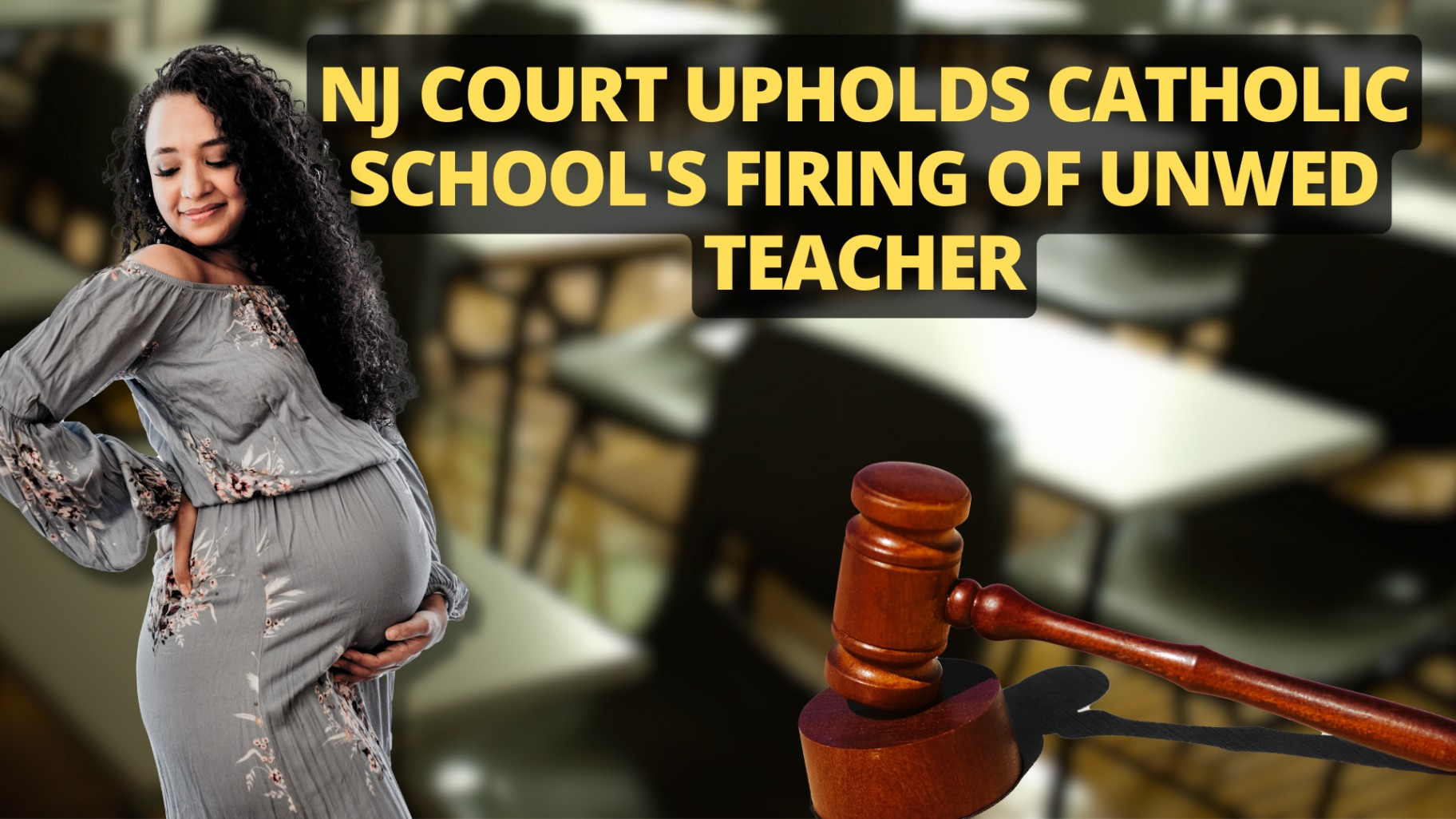
On August 14th, the Supreme Court of New Jersey ruled in favor of a Catholic school that fired an art teacher in 2014 because she became pregnant while unmarried, court documents have shown.
The Supreme Court of New Jersey on Monday sided with a Catholic school that fired a teacher in 2014 because she became pregnant while unmarried, according to court documents. https://t.co/2lOS7sTaIs
— CBS News (@CBSNews) August 16, 2023
The teacher, Victoria Crisitello, filed a complaint against her former school, St. Theresa School in Kenilworth, for employment discrimination, which violates New Jersey’s Law Against Discrimination, which prohibits unlawful employment discrimination based on factors such as the person’s sex (including pregnancy), marital/civil union status, familial status, domestic partnership status, and religion.
Crisitello began working at St. Theresa School as a toddler room caregiver in 2011 when she was approached for a full-time job as an art teacher in 2014. She informed the school’s principal she was pregnant during a meeting. Several weeks later, the school told Crisitello she violated their code of ethics, which required teachers and other employees to abide by the teachings of the Catholic Church. She was then fired from her job.
This is extremely unfortunate.
Mostly that they ruled the way they did in 2014, but also that they’ve allowed the law to stand for nearly a decade.
SCOTUS has not taken up the ruling and I doubt they’ll begin anytime soon.— Dan J (@dljordan2) August 16, 2023
But after Crisitello filed her complaint, the state’s Supreme Court sided with the Catholic school and decided that the firing was legal because the law provides exceptions for employers that are religious organizations like St. Theresa School, allowing them to follow the "tenets of their religion in establishing and utilizing criteria for employment."
The justices ruled that "the religious tenets exception allowed St. Theresa's to require its employees, as a condition of employment, to abide by Catholic law, including that they abstain from premarital sex.”
A spokesperson for the New Jersey's Office of the Attorney General noted that while the ruling was disappointing, the office was "grateful that its narrow scope will not impact the important protections the Law Against Discrimination provides for the overwhelming majority of New Jerseyans."
Crazy. Yet they'll hide and relocate the molesters they call priests
— phenyxphyre (@sjmojo21613) August 16, 2023
Peter Verniero, a lawyer representing St. Theresa School, welcomed the decision, saying, "We are pleased that the Supreme Court upheld the rights of religious employers to act consistent with their religious tenets and that the Court found that St. Theresa School did so here. Equally important, the Court found no evidence of discrimination in this case. This is a significant validation of St. Theresa School's rights as a religious employer."
The director of Supreme Court Advocacy for the American Civil Liberties Union-New Jersey (ACLU-NJ), Alexander Shalom, said he was disappointed with the case's verdict.
"While we recognize that the United States Supreme Court's prior decisions provide broad latitude to religious employers regarding hiring and firing, we believe the NJ Supreme Court could have, and should have, held that a second-grade art teacher was entitled to the protections of the Law Against Discrimination," Shalom said.
Similar cases of alleged employment discrimination in religious organizations have been heard at the federal level in courts before. The US Supreme Court decided in the Lady of Guadalupe School v. Morrissey-Berru case in 2020 that some employees of religious schools cannot sue for employment discrimination.
